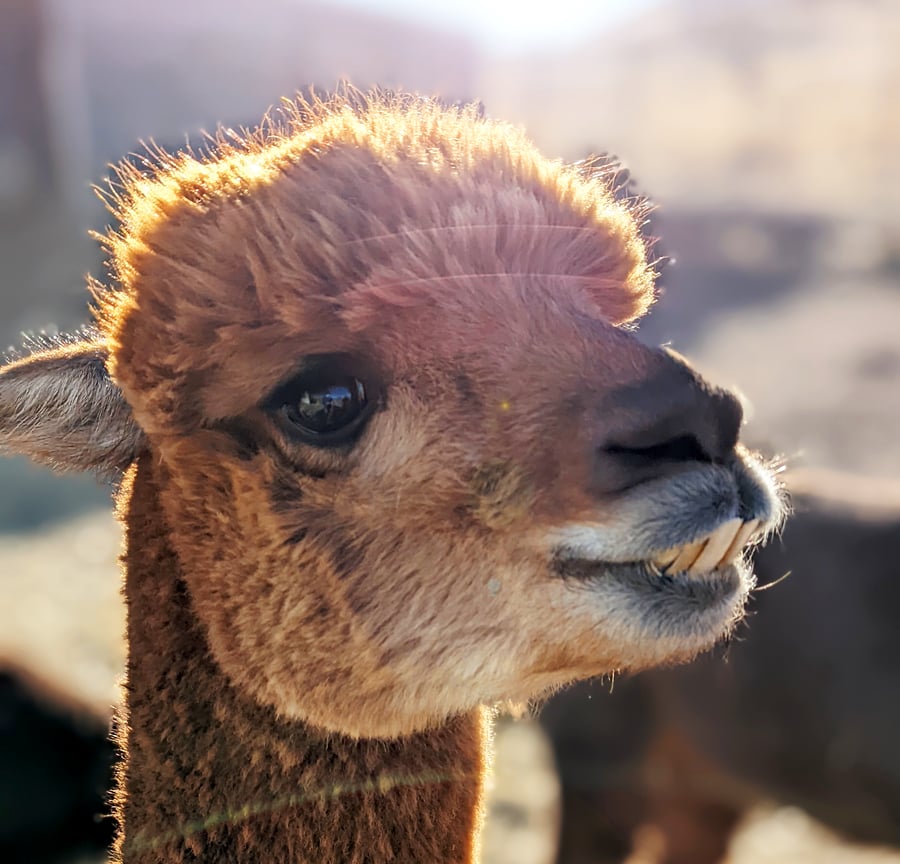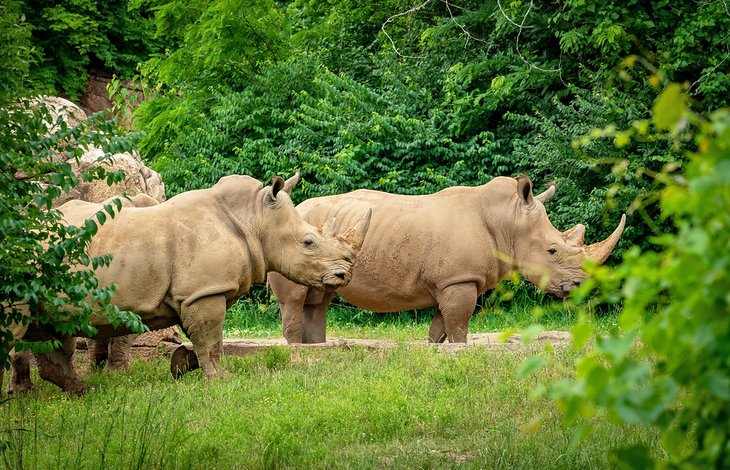Essential alpaca experiences and holiday advices in Colorado: Alpacas are very social creatures. They are gentle and curious and with training can become great pets, according to Switzer. Herds often include animals of different species or taxonomic families, such as llamas, goats and sheep, according to the FAO. Alpacas spit when they are distressed or feel threatened. They will sometimes spit at each other when they are competing for food or trying to establish dominance, according to Switzer. They won’t spit at people or bite unless they have been abused. See even more information on alpacas farm in Denver, Colorado.
Additionally, if you have any accessibility concerns that make hiking impossible, then there are also places to sit down next to the alpacas, which makes this activity available to everyone regardless of their ability or needs. The Smooth Alpaca Experience just so happens to have scenic mountain views of Red Rock Park. Yes, that’s right, the iconic Red Rocks Park and Amphitheatre where hundreds of concerts are held each year. Combine a visit to the venue with an alpaca experience. Are you looking for an educational opportunity for your kids? Come enjoy an alpaca experience that’s not only fun but also informative. This alpaca experience takes place on a fiber farm. This type of farm raises animals like alpacas, sheep, goats, llamas, angora rabbits, and more for their fleece and wool.
Alpacas breed once a year, and as livestock they are often induced to breed at any time. The female alpaca has a gestation period of 242 to 345 days and gives birth to just one offspring. The birthing process can take up to seven hours, according to National Geographic (opens in new tab). The baby alpaca, called a cria, weighs 18 to 20 lbs. (8 to 9 kg) when it is born. The cria is weaned at 6 to 8 months, and females are ready to reproduce at 12 to 15 months. Males take a bit longer to mature and are ready to mate at 30 to 36 months. Alpacas live up to 20 years.
As with all livestock, owners and visitors should use common sense and a degree of caution when working around alpacas. People working with alpacas should wear long pants and shoes or boots that have traction and cover the whole foot. Proper handling of alpacas, as well as all camelids, requires humans gaining their trust by using a calm voice and light restraint. Handling alpacas for herd husbandry is best taught to novice alpaca owners by experienced owners or experts.
Are alpacas an “exotic species,” or are they considered simply “livestock?” Alpacas have been raised as domestic livestock for thousands of years. Since the end-product of alpacas is their fleece, like sheep, they are classified as livestock by both the United States and Canadian federal governments. Do alpacas spit? All members of the camel family use spitting as a means of negative communication. They do get possessive around food, and may express annoyance by spitting at other alpacas that they perceive are encroaching on “their” food. Also, they often spit at one another during squabbles within the herd (usually involving two or more males). From time to time alpacas do spit at people on purpose, but it is more common that humans get caught in the crossfire between alpacas, so it’s best to study their behavior and learn to avoid the most vulnerable situations.
Are you planning a trip to the Mile High City? Most people pack their itinerary with a Colorado Rockies baseball game, a concert at Red Rocks Park and Amphitheater, and a hike at Rocky Mountain National Park in addition to all of Denver’s museums and botanical gardens. Yet, if you’re looking for an off-the-beaten-path adventure, you can’t miss an alpaca experience. Over the last several decades, Denver has become home to these gorgeous animals because Colorado’s arid climate mimics that of their native habitat. Discover extra details on https://meetalpacas.com/.
Can alpacas thrive in locations with very hot or very cold climates? Generally, yes. Alpacas are amazingly resilient animals and have adapted successfully to the extremes of both very hot and very cold climates. In hot, humid climates, alpaca owners need to take extra precautions to make sure that the alpacas do not suffer from heat stress. These include shearing fleeces early in the year, providing fans and ventilation in the barn, and offering cool fresh water for drinking.



